Brazil Favelas Launch Bank Amid Economic Hit Of Pandemic
The economic toll of the coronavirus pandemic has hit especially hard in Brazil's favelas, but the country's 10 biggest slums now have a plan to fight back: they are launching their own bank.
Dubbed the "G10 Bank," the new financial institution is set to open later this month, offering micro-loans to small business owners struggling to survive the pandemic and debit cards to slum-dwellers excluded from the traditional banking system.
Brazil has the second-highest death toll worldwide in the pandemic, after the United States, with more than 225,000 people killed.
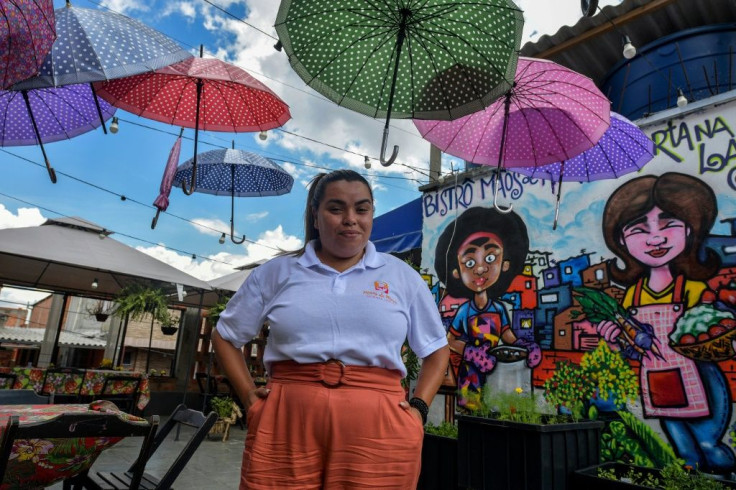
The impact has been especially devastating in the favelas, the crowded jumbles of shacks that are the postcard of poverty in Brazil.
Not only have the poor suffered more from Covid-19 in health terms, they have also borne the brunt of the economic impact.
Many favela residents work in the informal sector -- jobs such as childcare and housekeeping that disappeared when stay-at-home measures took effect, sending the unemployment rate to a record 14.6 percent last September.
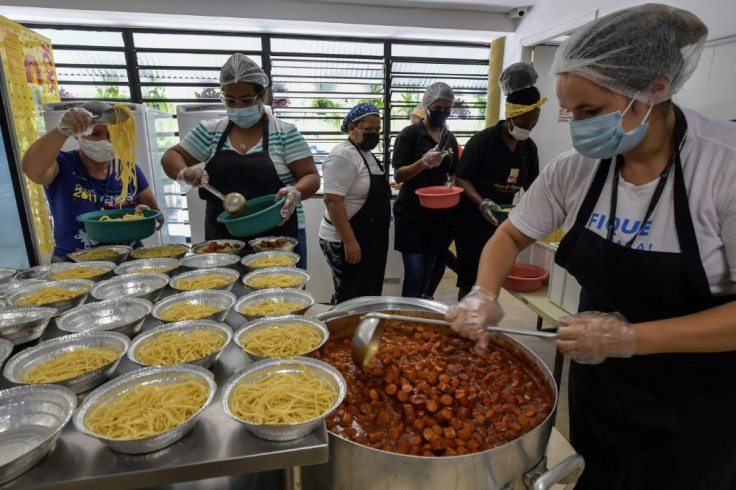
President Jair Bolsonaro's government had been providing emergency benefit payments of 600 reais (about $110) a month -- later halved to 300 reais -- to those most affected by the pandemic.
But it halted the program at the end of 2020, saying it was too expensive.
That left many Brazilians struggling to make ends meet. And banks or credit cards are usually not an option.
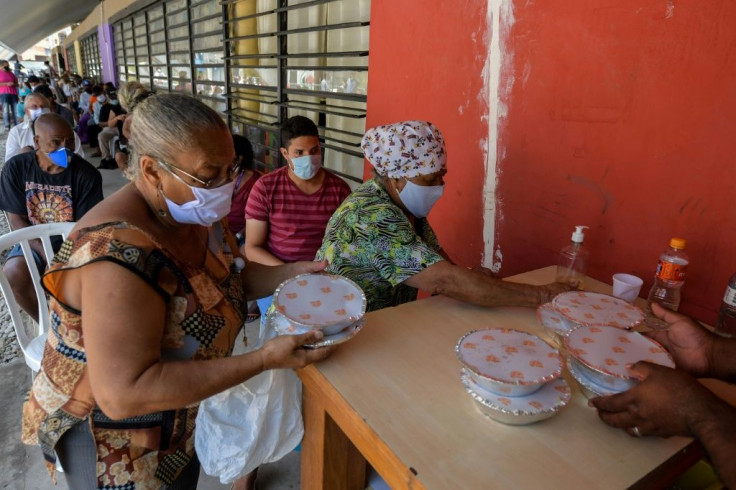
Traditional loans are a nearly impossible dream for households and businesses in the favelas.
Around 45 million Brazilians do not even have a bank account, according to a 2019 study by the Locomotiva institute. That is around one in three adults in the sprawling South American country.
The G10 Bank aims to fill that gap. For many in the favelas, it could not arrive at a more urgent time.
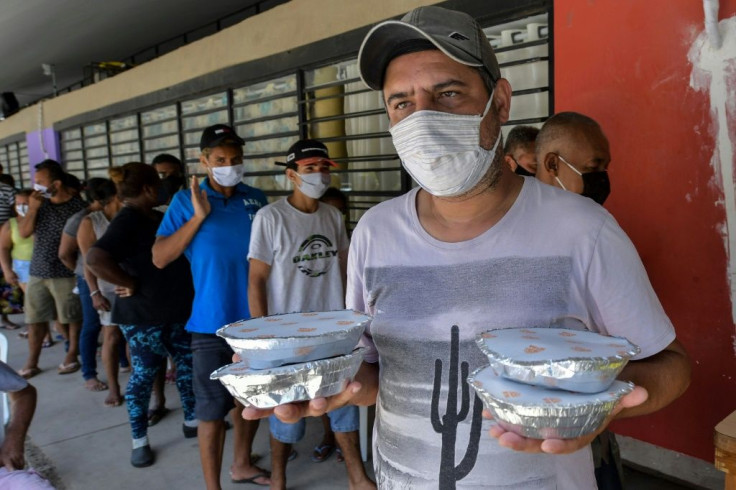
One soon-to-be client is Bistro Mains de Marie, a community restaurant in Paraisopolis, the second-biggest favela in Sao Paulo, with more than 100,000 residents.
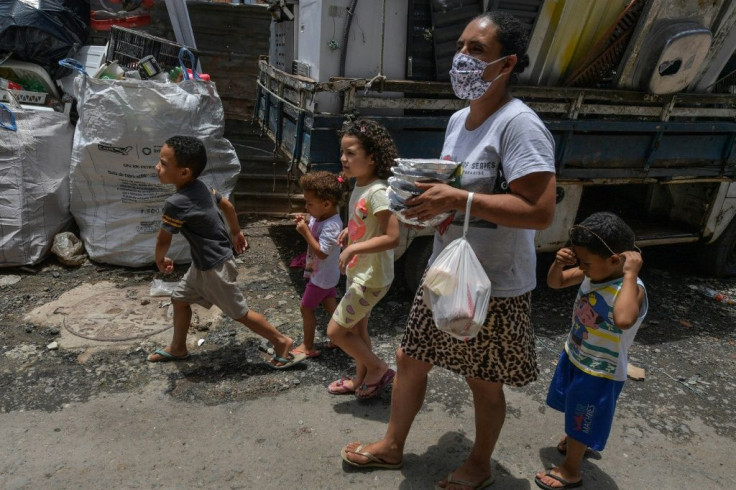
Launched in 2018, the restaurant has been giving out free meals to people who lost their income because of the pandemic.
"We've distributed 1.3 million meals since the pandemic started, thanks to a groundswell of solidarity. But donations have plunged since December," said Elizandra Cerqueira, the restaurant's founder.
Like most restaurants, the bistro's own revenues have dwindled during the pandemic.

To keep giving out meals and paying her employees, Cerqueira needs a loan, she says.
"Traditional banks have too many requirements for a business like mine to get a loan. You have to have guarantors and a credit history," she told AFP.
"The G10 Bank will be much better adapted to clients in the favelas."
The bank plans to offer low-interest loans, as well as debit cards that can be used to give favela residents social assistance payments.
The bank will have initial assets of 1.8 million reais (about $335,000), funded by anonymous investors.
It will have councils of economists and financiers overseeing its operations.
One-third of its funds will be slated for social programs.
In Paraisopolis, the line for food handouts zigzags across the bottom of the favela each morning.
Unemployed Celia Da Costa Gomes always heads home with five or six meals in aluminum containers.
But it is barely enough to feed her family. Gomes, who has 12 children, is already a grandmother at 40.
"I depend on donations to get by, but it's not enough. They need to bring back the emergency aid payments, because there are no more jobs here," she said.
Naldo Matos, 42, is also struggling to get by. The odd jobs he used to work have all dried up, he said.
He stands in the bread line every day.
"It's hard right now. Today I don't even have one real to buy bread," he said.
"We can tell that this is the moment when people need assistance the most," said Gilson Rodrigues, coordinator of G10 Favelas.
"We hope to become the development bank of the favelas."
© Copyright AFP 2024. All rights reserved.





















